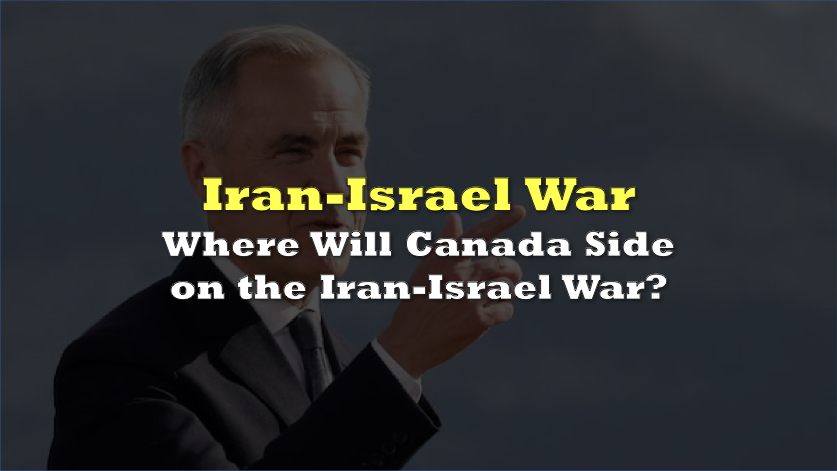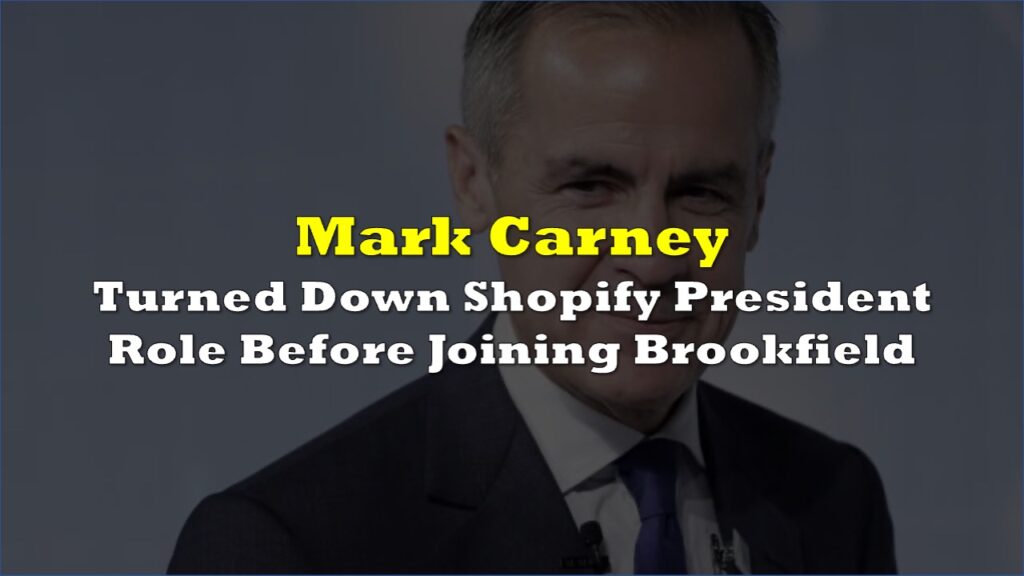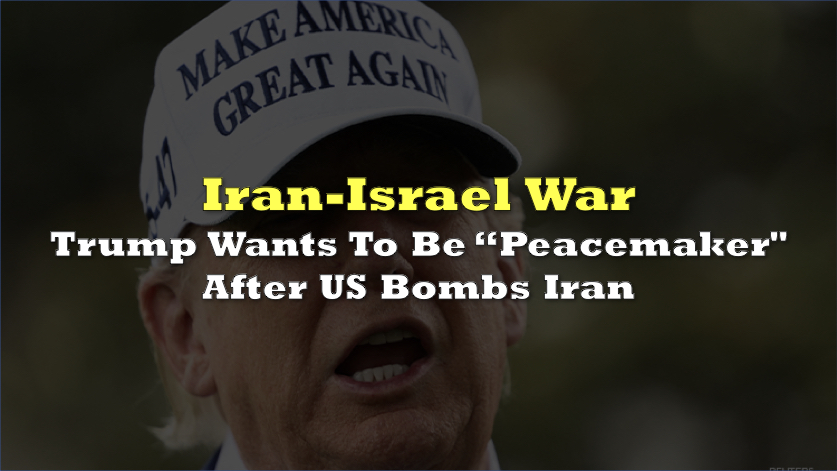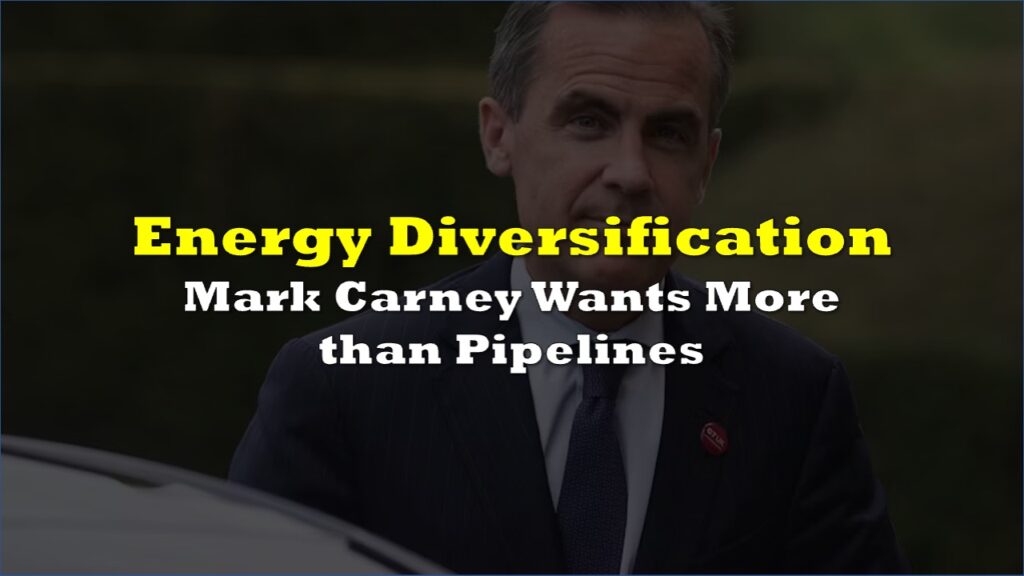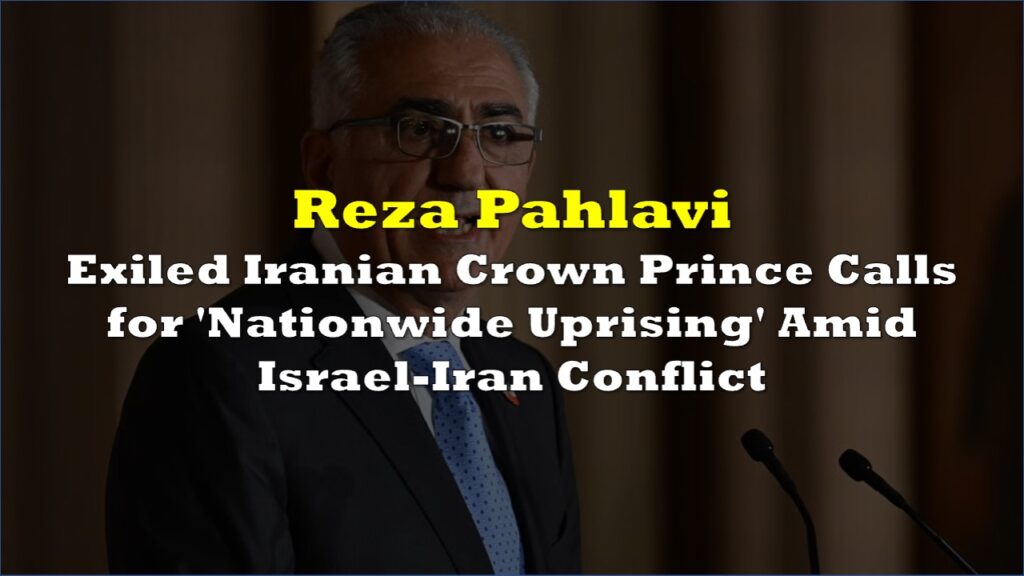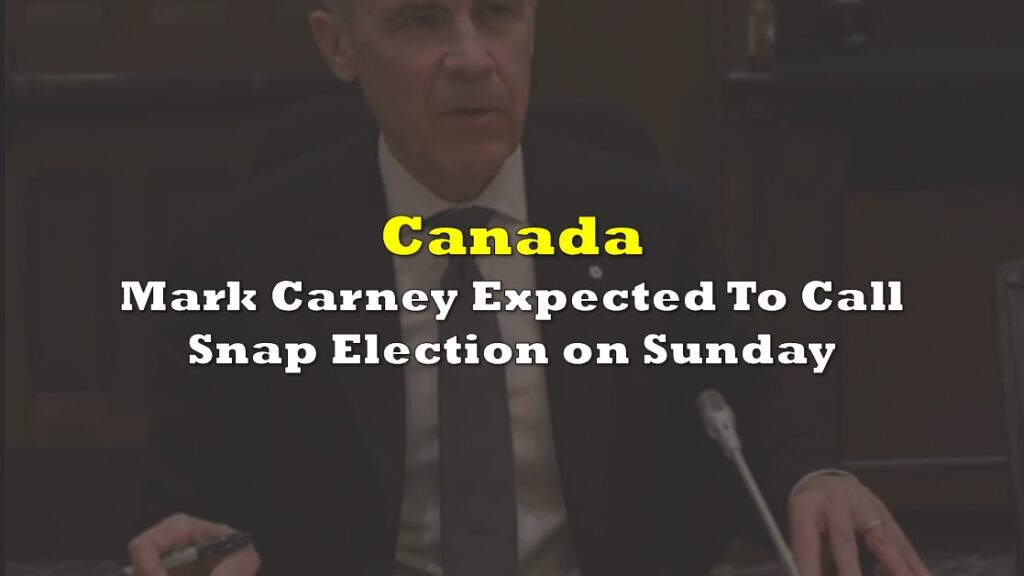When the G7, currently chaired by Canada, wrapped its summit in Banff, the communiqué on the war between Iran and Israel bore unmistakably Canadian fingerprints: “Israel has a right to defend itself,” it read, but also branded Iran “the principal source of regional instability and terror.”
These mirror the words Prime Minister Mark Carney himself wrote on X days before, saying “Iran’s nuclear program has long been a cause of grave concern” and the government reaffirms the position that Israel has the “right to defend itself.”
Iran’s nuclear program has long been a cause of grave concern, and its missile attacks across Israel threaten regional peace.
— Mark Carney (@MarkJCarney) June 13, 2025
Today, I convened our National Security Council to receive an update on the situation and to ensure that all necessary steps will be taken to protect our…
Carney, sworn in in March after a bruising Liberal leadership race, has just three months of federal stewardship behind him. Yet the Middle East conflict now demands decisions that could redefine Canada’s foreign-policy playbook, its energy economics and a delicate domestic balance between Jewish, Muslim, and Iranian-Canadian constituencies.
Canada’s history with the two states
The shooting war erupted after Israel carried out pre-dawn air strikes on June 13 against Iranian nuclear and missile sites—an operation Israeli commanders said was aimed at “wiping out” Tehran’s weapons programme and senior Revolutionary Guard leaders. Within hours, Iran answered with the largest direct barrage it has ever launched at Israel, firing more than 150 ballistic missiles and over 100 attack drones that penetrated Israeli airspace, injuring civilians in Tel Aviv, Haifa, and other urban centres.
Ottawa’s affinity with Israel runs deep. Canada was one of just 33 countries that voted “yes” to the 1947 UN partition plan—splitting the British Mandate in Palestine into Jewish and Arab entities—and, after a brief period of de facto ties, granted full de jure recognition in May 1949, a week before Israel opened its first consulate in Montreal.
Canada then upgraded from a non-resident envoy to a resident mission by 1953, opening an embassy in Tel Aviv and welcoming Michael Comay as Israel’s first ambassador to Canada. The relationship soon acquired a moral halo when External Affairs Minister Lester B. Pearson, confronting the 1956 Suez Crisis, devised the world’s first UN Emergency Force—an innovation that not only defused a super-power standoff but earned Pearson the 1957 Nobel Peace Prize and entrenched the idea of Canada as a dispassionate “honest broker” in Middle-East diplomacy.
Ever since, successive Canadian governments have cited that early recognition and Pearson’s peacekeeping legacy as touchstones whenever they justify pro-Israel votes at the UN.
Economic cooperation followed: the modernised Canada-Israel Free Trade Agreement now eliminates virtually every tariff line and underpins nearly $1.9 billion in annual goods trade, plus $430 million in services.
On the other hand, Tehran and Ottawa have lurched from guarded cordiality to outright estrangement in four memorable jolts. First came the 1979 “Canadian Caper,” when Canadian diplomats sheltered and spirited six US hostages out of revolutionary Iran—an episode celebrated in Argo but remembered in Tehran as unforgivable meddling.
The second rupture followed the 2003 torture-death of dual-national photojournalist Zahra Kazemi in Evin Prison. Ottawa recalled its ambassador and began a slow-drip sanctions policy that hardened public mistrust.
The third break was in September 2012 when Foreign Minister John Baird closed the Canadian embassy in Tehran, declared Iranian diplomats persona non grata and branded Iran “the most significant threat to global peace and security,” ending 53 years of resident diplomatic presence.
The final freeze came after Iran’s Revolutionary Guards shot down Ukraine International Airlines Flight PS752 in January 2020, killing 55 Canadian citizens and 30 permanent residents. A grassroots “Justice for PS752” movement demanded legal redress and Ottawa led UN efforts to take Tehran before the International Court of Justice.
Angry street protests after Mahsa Amini’s death in 2022 spurred seventeen successive Canadian sanctions rounds against Iranian officials, and the chill became statutory in June 2024 when Public Safety Canada added the entire Islamic Revolutionary Guard Corps to the Criminal Code’s terror list, criminalising any material support and forcing Canadian banks to freeze IRGC-linked assets.
Walk with Israel
On paper, Canada-Israel merchandise trade is a modest $1.9 billion a year but sectoral ties run far deeper than the gross number suggests. Through the 2024-25 Canada-Israel Industrial-R&D Call, Israeli irrigation firms Netafim and Rivulis have each signed MOUs with Saskatchewan-based ag-tech companies to seek federal co-funding for pilot water efficiency trials on Prairie test plots. Separately, Alberta Premier Danielle Smith has invited Israeli cleantech startups “in the technology, water and agriculture sectors” to establish Canadian operations.
In finance, Royal Bank of Canada still cites the US$2 million AI-driven cybersecurity lab it seeded at Ben-Gurion University as a live partnership that was launched in 2018—one reason RBC’s chief information security office calls Israel “our external cyber-R&D wing.”
Defence cooperation is equally tangible: the Canadian Armed Forces have trialled Israeli-built Hermes 900 drones for Arctic surveillance and integrate Israeli missile defence telemetry into Five-Eyes signals pipelines.
The 2021 census logged 335,295 Canadians identified as Jewish, and a record 56,000 people turned out for Toronto’s “Walk with Israel” in May 2025. This domestic political space is evident when Conservative leader Pierre Poilievre referenced in a rally a pledge to deport foreigners convicted of antisemitic hate crimes and his X post insisting Israel “cannot wait” for Iran to develop its nuclear program.
Israel has the right to defend itself—including by disarming Tehran’s genocidal nuclear program. It cannot wait until the regime has capabilities for a nuclear strike.
— Pierre Poilievre (@PierrePoilievre) June 13, 2025
We should all hope that this is the end of the regime’s nuclear program and that the great Persian people can…
For a minority Liberal government, visible solidarity with Jerusalem helps blunt that charge and court swing voters in Toronto, Montréal, and Winnipeg—cities where Jewish engagement often decides tight races.
Yet the downside is equally concrete. A Leger poll conducted this June found that 45% of Canadians believe Israel is committing genocide in Gaza. Compared to the year before, fewer Canadians disagree (23% vs. 31%) that Israel is committing genocide and only 24 % support increasing Canadian military cooperation with Israel—numbers that translate into electoral peril for Liberal MPs in Muslim-majority suburban ridings.
Critics also warn that siding decisively with Israel would place Canada on the wrong side of both international law and emerging public opinion. Ottawa has already suspended new arms export permits to Israel since January 2024 on the grounds that it cannot “ensure the weapons are used in accordance with Canadian law,” a freeze Foreign Affairs says will remain in force indefinitely. Yet civil society lawyers note that even legacy permits risk breaching Canada’s obligations under the Arms Trade Treaty, which bars transfers where there is a clear risk of facilitating war crimes.
The reputational stakes are heightened by the last UN General Assembly vote in 2023—backed by 153 states—that demanded an immediate Gaza ceasefire. Canada abstained, a posture diplomats say undermines its 2027 Security Council bid.
Commercial fallout looms as well. Engineering firm AtkinsRéalis is midway through a five-year delivery partner contract on Saudi Arabia’s US$500 billion NEOM project. Two construction sector sources told the Globe and Mail that Saudi procurement officials flagged “political risk” should Ottawa adopt what Riyadh views as a one-sided pro-Israel stance; no formal ultimatum has been issued. Similar caution is voiced by wheat exporters and LNG contractors whose Gulf state customers view Israel’s campaign with growing hostility.
Finally, human rights lawyers point to mounting litigation: a March 2024 suit in Federal Court seeks to halt all Canadian military sales to Israel on grounds that continued transfers violate the Export and Import Permits Act and expose Ottawa to claims of aiding war crimes.
South Africa’s genocide petition against Israel is now before the International Court of Justice.
Talk with Iran
Canada’s January 2025 merchandise exports to Iran amounted to just $79 million—barely one-twentieth of a typical month’s shipments to Israel. Yet the figure masks a 279% jump from the previous January, evidence that Canadian grain and medical equipment suppliers are quietly positioning for a day when sanctions ease and the Iranian market re-opens.
Far more immediate is Iran’s capacity to rattle Canada’s cost of living math: a single missile into the Strait of Hormuz, JPMorgan told clients recently, could ignite Brent at US$120-130 a barrel—an oil spike that would drive up pump prices.
In the similar 2021 census, it counted nearly 1.8 million Muslims—4.9% of the population—and 200,465 Canadians of Iranian ethnic origin. Liberal seats in the vote-rich suburbs of Toronto and Metro Vancouver hinge on those Muslim and Iranian-Canadian voters, many of whom joined the ceasefire marches that filled downtown streets through the spring.
There’s a harder edge to consider regarding security when the February 2025 Foreign Interference Commission report listed Iran among the five state actors capable of mounting cyberintrusions against Canadian critical infrastructure and democratic institutions. A foreign policy that appears to support Israel’s Gaza offensive would not only alienate Muslim constituents but could invite Tehran-linked digital reprisals.
Iranian officials have signalled through the E3 that they are still prepared to resume nuclear talks. Canada, which once played a quiet convening role before the 2015 JCPOA, could regain diplomatic relevance by positioning itself as an honest broker rather than an automatic vote in Israel’s column.
A non-overt position favoring Israel may also mitigate risk to the 60 Canadian peacekeepers serving with UNIFIL in southern Lebanon.
Balancing with Carney
Carney’s technocratic record—Bank of Canada, Bank of England, then Liberal finance critic—suggests default alignment with G7 orthodoxy: sanctions on Iran’s military assets, humanitarian carve-outs, diplomatic cover for Israel but pressure to limit civilian harm.
In May, he issued a joint statement with Britain’s Keir Starmer and France’s Emmanuel Macron denouncing Israeli military escalation in Gaza as “wholly disproportionate” and threatening “further concrete actions” if humanitarian access did not improve.
My joint statement with @Keir_Starmer and @EmmanuelMacron on the situation in Gaza and the West Bank:
— Mark Carney (@MarkJCarney) May 19, 2025
“We strongly oppose the expansion of Israel’s military operations in Gaza. The level of human suffering in Gaza is intolerable. Yesterday’s announcement that Israel will allow…
Two weeks later, Ottawa joined UK, Australia, New Zealand, and Norway in sanctioning far-right Israeli ministers Bezalel Smotrich and Itamar Ben-Gvir for “incitement of violence.”
In June, the prime minister mourned Canadian-Israeli teacher Judih Weinstein—her remains recovered after Hamas had held them for nineteen months—while pledging new security funds to confront “the reprehensible resurgence in antisemitism.”
After over a year and a half of anguish, the remains of Judih Weinstein — a Canadian murdered by the terrorist entity Hamas on October 7 — have been recovered by Israel.
— Mark Carney (@MarkJCarney) June 5, 2025
Judih was a mother, grandmother, and a teacher. She dedicated her life to guiding others with empathy,…
His recent remarks ahead of the G7 summit fused both instincts: “We call on all parties to exercise maximum restraint and move towards a diplomatic resolution.”
Still, the government faces cross-pressures. Civil society groups like Canadians for Justice and Peace in the Middle East demand condemnation of what they call Israeli “illegal aggression.” Within caucus, urban MPs from ridings with sizable Iranian and Arab electorates warn that a blank cheque to Jerusalem could cost votes in Greater Toronto and Vancouver.
Officials say Carney has ordered a three-point response: considering fresh asset freezes on IRGC-linked shipping firms; a Royal Canadian Navy frigate under NATO command to shepherd Red Sea traffic, not a US-only flotilla; and a $250 million Gaza relief package that includes fast-track medical visas. The aim is to signal solidarity with Israel’s security needs, punish Iran’s proxy networks, and keep faith with humanitarian-minded voters without rupturing ties to either Washington or the Gulf monarchies.
Practically, Canada will side with Israel in the kinetic phase on hard security—intelligence sharing, missile-defence R&D, naval escort duty—while frontloading diplomacy and humanitarian relief to appease domestic and international critics. Expect Ottawa’s messaging arc to move from “Israel’s right to defend” toward “de-escalate and negotiate,” matching Carney’s G7 choreography.
The true test comes if the war widens. If Iran strikes Canadian assets directly, the hedging collapses and Ottawa slides decisively into the Israel-US camp. A Hormuz shutdown would force Carney to choose between energy price relief at home and tougher sanctions abroad.
Conversely, a durable ceasefire could let Canada revive the Pearsonian peacekeeper brand and stave off potential genocide implications for Ottawa.
The strategy is less moral clarity than risk management: protect Bay Street from an oil price shock, keep the Liberal caucus intact, satisfy Washington that Ottawa remains a dependable ally, and preserve just enough neutrality to mediate if talks materialise. Whether Carney can maintain that knife edge without alienating either diaspora voters or strategic partners will define his foreign policy legacy long after the missiles stop flying.
Information for this story was found via the sources mentioned. The author has no securities or affiliations related to the organizations discussed. Not a recommendation to buy or sell. Always do additional research and consult a professional before purchasing a security. The author holds no licenses.

